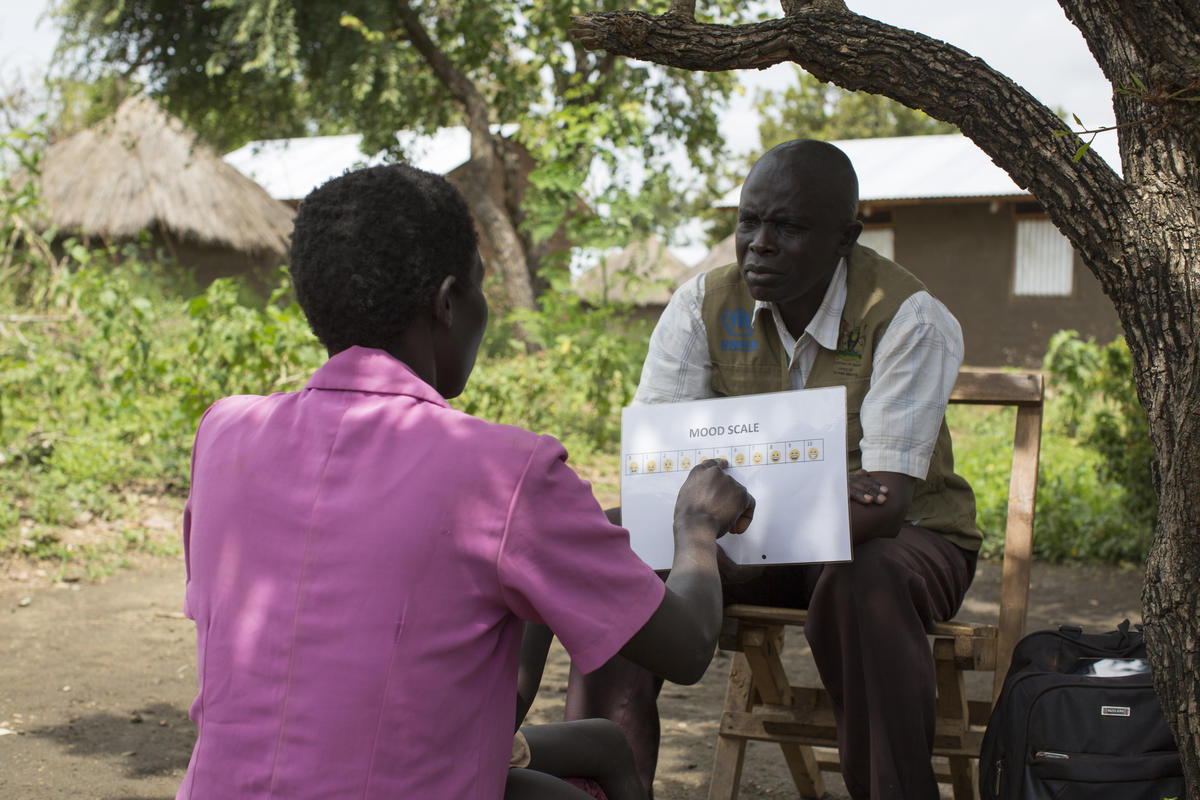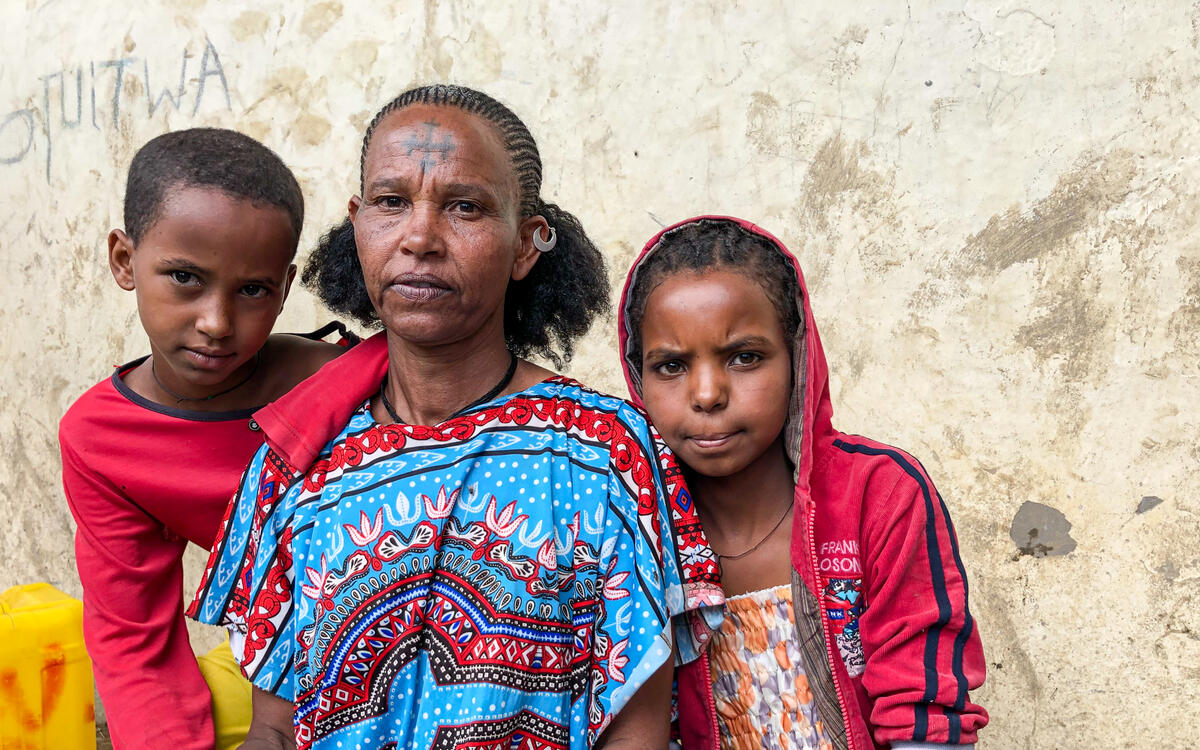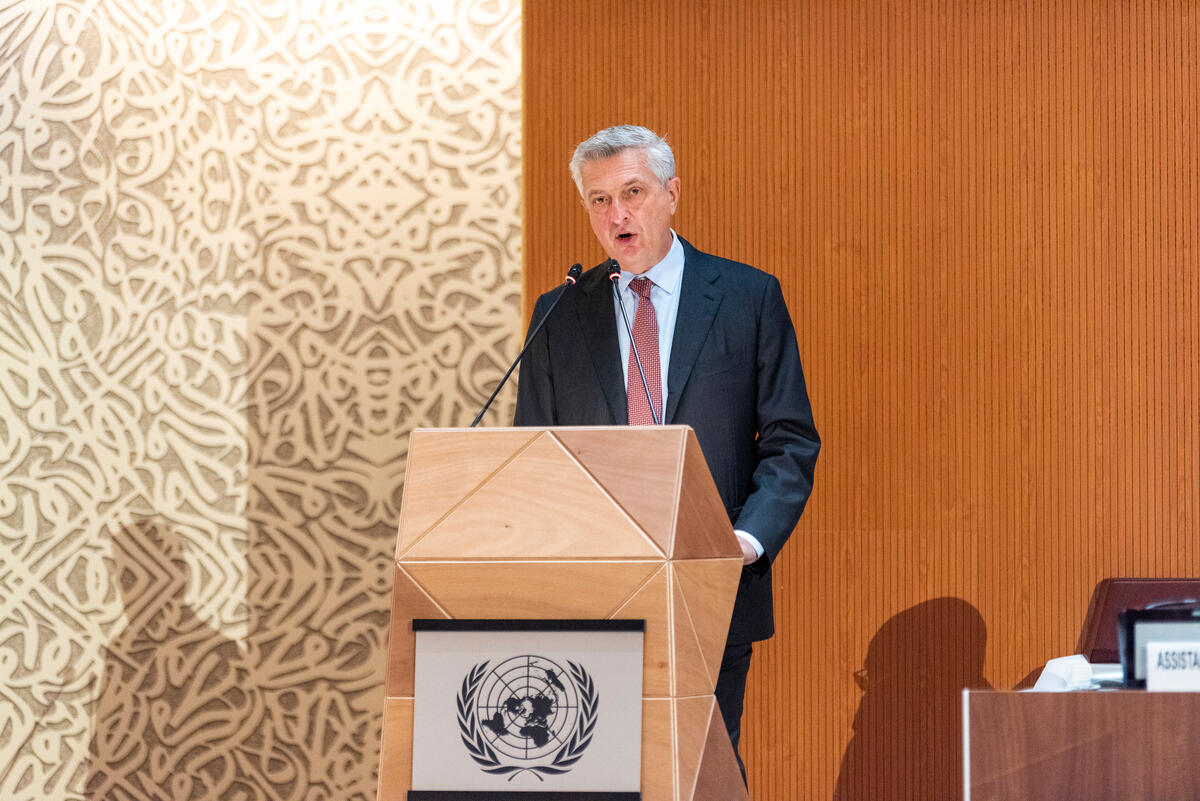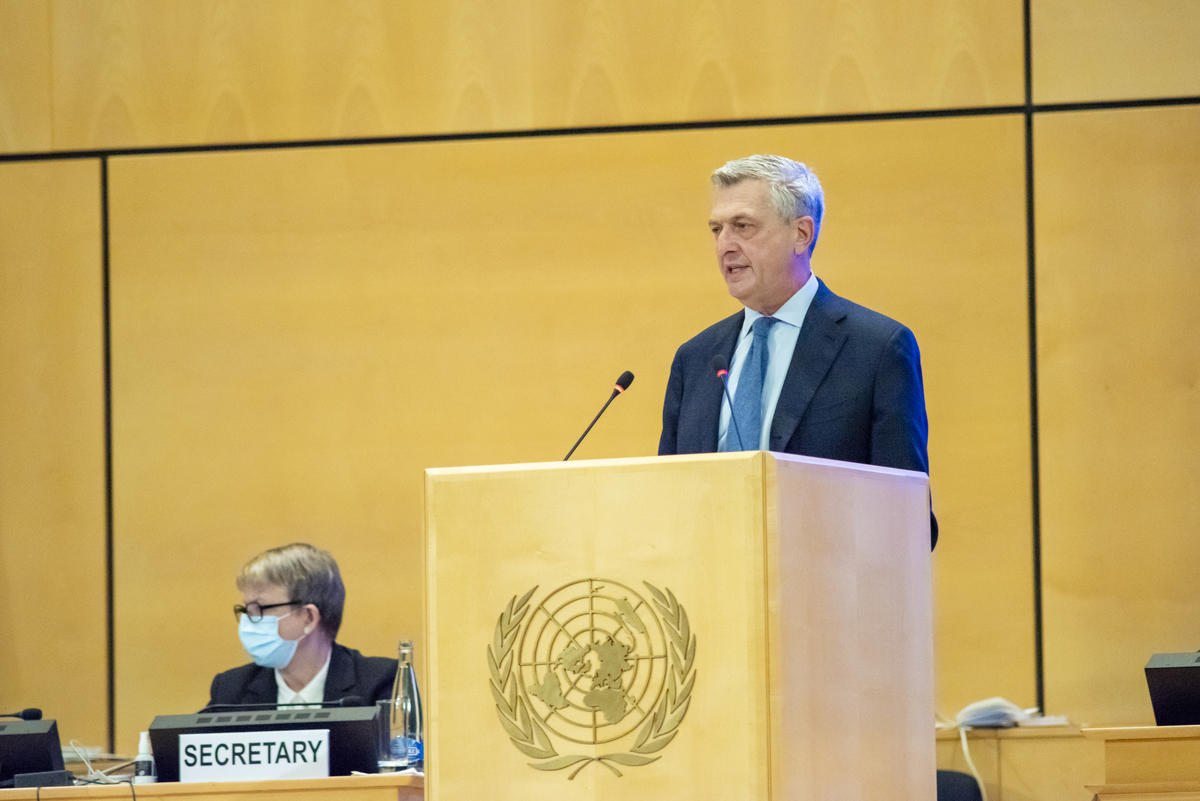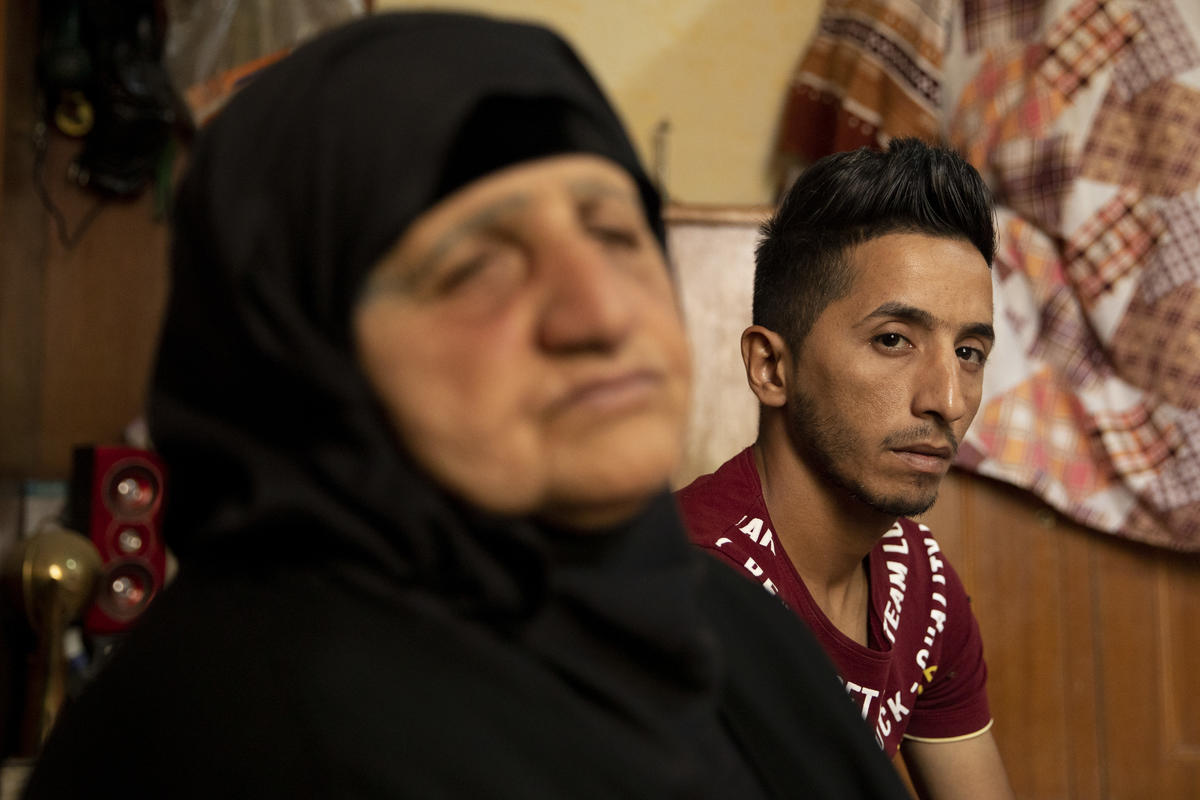Lubbers opens annual UNHCR Executive Committee meeting
Lubbers opens annual UNHCR Executive Committee meeting
29 September 2003
GENEVA - Welcoming Iraq's new Minister for Displacement and Migration to the annual meeting of UNHCR's 64-nation Executive Committee, High Commissioner Ruud Lubbers declared Monday that he was ready to work with Iraqi authorities to prepare for the return of hundreds of thousands of refugees.
Addressing the opening session of the five-day meeting, Lubbers said the security situation in Iraq had put on hold UNHCR's plans for the return of some 500,000 Iraqi refugees and asylum seekers and 800,000 internally displaced people.
But he said UNHCR was intent on working closely with the Iraqi authorities, particularly the new Minister for Displacement and Migration, Mr. Mohammed J. Khudhir, on laying the groundwork for repatriation. Mr. Khudhir is attending the Executive Committee meeting.
The immediate challenge, Lubbers said, is to find the right balance between assisting the Iraqi people and protecting those who help them. "If we cannot work with the Iraqi people and with Iraqi authorities," Lubbers said, "then we cannot work there at all."
Building confidence in UNHCR among the people of Iraq had to be a priority, he added.
Lubbers also updated the committee on his "UNHCR 2004" process, which is aimed at reviewing how UNHCR is best situated within the U.N. system vis-à-vis States and partners. The process has re-examined nearly every facet of the agency's mandate, work, funding and governance, culminating in a sweeping "UNHCR 2004" report that will soon be submitted to the Third Committee of the U.N. General Assembly in New York. The Executive Committee is expected to adopt a conclusion that includes the main elements of the recommendations as outlined in the report.
The High Commissioner also said considerable progress had been made in his "Convention Plus" initiative aimed at finding durable solutions for refugees through special, multilateral agreements.
In a review of UNHCR's global operations, the High Commissioner cited the Afghan repatriation as "truly exceptional," with more than 2 million people going home in 2002.
"The number of returns this year has been lower, but with over half a million so far, it remains the largest return movement anywhere in the world," he said. "This is a remarkable achievement, particularly when one considers the worsening security situation and the fact that much of the country is still in ruins after decades of war."
In Africa, some 160,000 refugees had returned to Angola after 27 years of war and nearly half a million others are anxious to go home. There were also hopeful signs in the Democratic Republic of Congo, and he welcomed the UN Security Council's decision to send a UN-mandated peacekeeping force to Liberia, where UNHCR was continuing to facilitate the return home of Sierra Leonean refugees.
The faltering peace process in Burundi leaves over 300,000 Burundian refugees and almost 400,000 internally displaced people with limited prospects for return in the near future, he said. Recent fighting in the Darfur region of Sudan, meanwhile, had sent 65,000 refugees fleeing to Chad.
Turning to Asia, Lubbers announced three new measures for ending the "totally unacceptable" situation of over 100,000 Bhutanese people languishing in camps in Nepal.
"First, since the Nepalese Government has offered to settle those willing to remain and to grant them citizenship, my Office will promote self-reliance projects to facilitate their integration and will phase out its direct involvement in the camps. Second, my Office will support resettlement initiatives for vulnerable cases. Third, because of the denial of access to UNHCR in Bhutan, making it impossible for us to monitor the return process, we will not promote returns. My Office will, however, assist in verifying that returns from Nepal are voluntary. In Bhutan, the right of return must be respected. I urge States, and particularly neighbouring India, to assist Bhutan and Nepal to identify just, humane and durable solutions ... "
In China, the plight of North Koreans who leave their country "illegally" remains a serious concern, the High Commissioner said.
"For a number of years, UNHCR has been making efforts to obtain access to them, but this has consistently been denied," he said. "An analysis of currently available information recently carried out by our Department of International Protection concludes that many North Koreans may well be considered refugees. In view of their protection needs, the group is of concern to UNHCR. For those in need of assistance, UNHCR is ready to work with partners in meeting their needs. Above all, the principle of non-refoulement must be respected."
In the North Caucasus, where displaced Chechens are again under pressure to leave Ingushetia, Lubbers called for a two-pronged approach: continued guarantees of viable safe haven in Ingushetia until the displaced judge that conditions are conducive for their voluntary return; and UNHCR support for a series of pilot projects in Chechnya aimed at enabling the sustainable reintegration of those who wish to return.
In Europe, the High Commissioner welcomed moves by European Union countries to consider development assistance to developing nations that host large numbers of refugees. But he lamented the "highly politicised environment" in which EU countries are carrying on the asylum debate leading to "increasingly restrictive measures in many areas of asylum law and practice."

